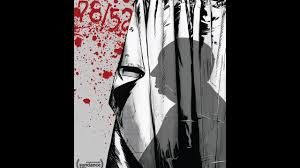NO VACANCY: Movie reviews of 78/52 and The Florida Project by Howard Casner
Posted: November 10, 2017 | Author: Donald | Filed under: Uncategorized | Tags: 78/52, Alexander O. Philippe, Alfred Hitchcock, Bria Vinaite, Brooklyn Prince, Chris Bergoch, Danny Elfman, Elijah Wood, Guillermo del Toro, Jamie Lee Curtis, Marli Renfro, Martin Scorsese, Peter Bogdanovich, Psycho, Sean Baker, The Florida Project, Willem Dafoe | 10,950 Comments » For questions: hcasner@aol.com
For questions: hcasner@aol.com
First, a word iefrom our sponsors: I am now offering a new service: so much emphasis has been given lately to the importance of the opening of your screenplay, I now offer coverage for the first twenty pages at the cost of $20.00. For those who don’t want to have full coverage on their screenplay at this time, but want to know how well their script is working with the opening pages, this is perfect for you. I’ll help you not lose the reader on page one.
Ever wonder what a reader for a contest or agency thinks when he reads your screenplay? Check out my new e-book published on Amazon: Rantings and Ravings of a Screenplay Reader, including my series of essays, What I Learned Reading for Contests This Year, and my film reviews of 2013. Only $2.99. http://ow.ly/xN31r
and check out my Script Consultation Services: http://ow.ly/HPxKE
Warning: SPOILERS
 Writer/director Alexander O. Philippe’s 78/52 is not only everything you wanted to know about the infamous scene in Alfred Hitchcock’s seminal film Psycho that did for showers what Jaws would later do for Fourth of July swimming in the seas, but everything you didn’t know you wanted to know (the name derives from the set piece requiring 78 camera set ups and 52 shots).
Writer/director Alexander O. Philippe’s 78/52 is not only everything you wanted to know about the infamous scene in Alfred Hitchcock’s seminal film Psycho that did for showers what Jaws would later do for Fourth of July swimming in the seas, but everything you didn’t know you wanted to know (the name derives from the set piece requiring 78 camera set ups and 52 shots).
There has always been something perverse, not just about all of Hitchcock’s oeuvre, but especially in Psycho.
It’s not just that the movie is horrifying and scares the shit out of you.
It’s not just that it’s somewhat mean spirited (not just to the audience, but to the characters on screen).
It’s just that you can tell Hitchcock is having fun killing someone in such a way that both terrifies the audience while making them enjoy it and then feel guilty about it.
IF ONLY: Movie Review of Silence by Howard Casner
Posted: January 10, 2017 | Author: Donald | Filed under: Uncategorized | Tags: Adam Driver, Andrew Garfield, Issei Ogata, Jay Cocks, Liam Neeson, Martin Scorsese, Rodrigo Prieto, Shusako Endo, Silence | 79 Comments »For questions: hcasner@aol.com
First, a word from our sponsors: I am now offering a new service: so much emphasis has been given lately to the importance of the opening of your screenplay, I now offer coverage for the first twenty pages at the cost of $20.00. For those who don’t want to have full coverage on their screenplay at this time, but want to know how well their script is working with the opening pages, this is perfect for you. I’ll help you not lose the reader on page one.
Ever wonder what a reader for a contest or agency thinks when he reads your screenplay? Check out my new e-book published on Amazon: Rantings and Ravings of a Screenplay Reader, including my series of essays, What I Learned Reading for Contests This Year, and my film reviews of 2013. Only $2.99. http://ow.ly/xN31r
and check out my Script Consultation Services: http://ow.ly/HPxKE
Warning: SPOILERS
 Silence, the new film written by Jay Cocks and Martin Scorsese, who also directed, is adapted from a 1966 Japanese novel by Shusako Endo. The basic premise revolves around two Portuguese priests, Fathers Rodrigues and Garrpe, who go to Japan to find out whether an earlier missionary, Father Ferreira, had buckled under the persecution of the government there, a government that had outlawed Christianity, and renounced his faith.
Silence, the new film written by Jay Cocks and Martin Scorsese, who also directed, is adapted from a 1966 Japanese novel by Shusako Endo. The basic premise revolves around two Portuguese priests, Fathers Rodrigues and Garrpe, who go to Japan to find out whether an earlier missionary, Father Ferreira, had buckled under the persecution of the government there, a government that had outlawed Christianity, and renounced his faith.
When the two fathers reach Japan, they see a cruel world in which the slightest hint of Christianity leads to savage torture. They do what they can for the underground faith while searching for Ferreira, but are eventually caught and tortured themselves.
I have to be honest. I don’t really know how I’m supposed to react to what I see on the screen. Scorsese is definitely sincere in trying to explore the meaning of faith. But for me, I think this is quite possibly the worst film made in some time by a great filmmaker. Read the rest of this entry »
Movie Review of THE WOLF OF WALL STREET by Howard Casner
Posted: January 3, 2014 | Author: Donald | Filed under: Uncategorized | Tags: Christine Ebersole, Donnie Azoff, Fran Lebowitz, Joanna Lumley, Jon Favreau, Jonah Hill, Jordan Belfort, Kyle Chandler, Leonardo DiCaprio, Martin Scorsese, Matthew McConaughey, Rob Reiner, Terence Winter, The Wolf of Wall Street | 1,532 Comments »The first two thirds of The Wolf of Wall Street, the new fevered dream about evil doings in the stock market, written by Terence Winter and directed by Martin Scorsese, is a roller coaster ride of sex, drugs and (no, not rock and roll, though there is a lot of that thrown about in the background, along with a marching band in their underwear) greed.
This is Scorsese at his glorious best. It’s a return to (do I dare use the “f” word; I mean, it’s such a “c” word; okay, I’ll do it) form (the “c” word, if your dirty mind didn’t guess it, is “cliché”). It’s the Scorsese of Raging Bull, New York, New York, and Goodfellas. The Scorsese that will pull every directing trick he can out of his bursting at the seams bag and explode it on the screen.
It’s the old Scorsese where you felt (pardon the vulgarity) that when there was fucking on the screen, he was banging away himself; that when people were stuffing white substances up their noses, he was using hundred dollar bills to do the same; that when people are conning the life savings out of poor hapless people, so was Scorsese (well, maybe that’s one screw turned too many, but then again, maybe it does sort of apply here in a way).
But as splendid and invigorating as his directing is, I think this movie demonstrates one very important aspect of Scorsese’s talent. Scorsese is a great director, but he’s only a great filmmaker when he has a good screenwriter at his back.
I mean, to be ruthlessly honest and in full disclosure, I have not cared for a Scorsese film, outside a few documentaries, since Kundun. But I never thought the issue was Scorsese’s direction. No matter the film, he seemed as in command of the screen as ever.
But what always seemed to let him down was his screenplay. Scorsese has always been one of America’s finest directors, but he has also been one who seemed especially dependent on his screenwriter. And over the last number of years, he has careened like a pinball from bad screenplay (The Gangs of New York), to perfectly okay, but nothing great screenplay (The Aviator, The Departed), to awkwardly written and it just doesn’t work screenplay (Hugo), to perfectly dreadful screenplay (Shutter, or is it “shudder”, Island)—and most of the time with the movies ending up in tilt.
But here it looks like Scorsese may have found someone to save the day in Winter, a writer who also has many an episode of the TV series The Sopranos and Boardwalk Empire to his name. Winter has created fascinating and fully realized characters, a narrative that is turn the page captivating, and dialog filled with wit and energy.
It is Winter (unless someone else came in and rewrote the screenplay behind his back, which does happen, I guess, but I’ve no reason to believe it here) who has come up with such priceless scenes as the hero Jordan Belfort’s first day selling penny-ante stocks where he mesmerizes his hapless fellow workers; the scene where his future second in command Donnie Azoff will quit his job if Jordan can show him a $72,000 pay stub; a talk about marrying first cousins; a riotously funny incident where a quaalude kicks in at just the wrong time; a scene where…
Actually, I could go on and on, I loved the writing so much. But the scene that really stands out as a remarkable piece of authorship is the pas de deux between Jordan and his father where the father (played effectively in a change of pace role by former meathead turned director Rob Reiner) comes into Jordan’s office furious over some expense reports and then stays for a private conversation concerning what Jordan likes in prostitutes. It’s the sort of scene where a screenwriter could die happy knowing that he has written it.
Again, for the first two thirds of the movie, the film is captivating and frequently surprised me. Winter and Scorsese would often structure a scene the same way: it would start out hysterically funny (as in the marching band scene) and then suddenly turn ugly and revolting, often ending up looking like a homage to Hieronymous Bosch. It’s obvious that Scorsese is fascinated by these Alpha-male wannabees. It’s equally obvious that he is also disgusted by them as well.
However, it must be said, though, that it’s also equally obvious that it’s not always easy to tell when Scorsese’s fascinated by them and when he’s disgusted by them, something that will lead to problems in the last act.
And like so many end of year films, the movie is cleverly cast. I mean, who would have thought that of all the people who came out of the Seth Rogan/Judd Apatow School of Performing Arts that it would be little Jonah Hill of Superbad that would end up showing the most interesting and exciting acting chops?
With Hill’s performance in Moneyball and this one as Donnie, he’s demonstrated that there is much more to his ability than adolescent frat movies (and I have nothing against adolescent frat movies, some of my best friends are adolescent frat movies). He’s a whirling dervish of a character actor going powder filled nose to powder filled nose with Leonardo DiCaprio as Jordan. And they make some of the most beautiful timing together of the year.
DiCaprio, for his part, gives an equally strong performance in the title role. He may not be quite as convincing when he tries to play poor working class, everyday, normal Jordan, but once the cocaine hits the nose, there is nothing stopping him from commanding the screen.
And both are supported by excellent performances from a cast including Kyle Chandler, Matthew McConaughey, Joanna Lumley, Jon Favreau, Christine Ebersole, and Fran Lebowitz (basically playing the same character she played regularly on Law & Order).
But then it happens. We reach that final third. And then things stop working as well as they were earlier. And I think there are a couple of reasons for this. First, Jordan not in command of his empire of the sun, but stuck ala Charlie Sheen at his mansion, complete with a tracking bracelet, just isn’t very interesting; he’s back to being the Jordan in the opening scenes, and there’s just not a lot for DiCaprio to work with here to keep the energy up.
However, more important, I think Winter and Scorsese make a very serious misstep here. Everybody involved in the making of the movie keeps claiming that, even though at times Winter and Scorsese seem to be celebrating what the characters are doing, they aren’t really condoning how these characters act and what these characters have done. And I believe it.
But where Winter and Scorsese go wrong is that they ultimately make the story about what Jordan does to Jordan, what he does to himself. But that’s not really what Jordan’s story is about. The story is about what Jordan has done to the American economy and the myriads of people whose lives he destroyed. But that aspect of the story doesn’t interest Winter and Scorsese for some mind boggling reason. In fact, all of that is chopped liver as far as they are concerned.
All the two really care about is Jordan. But Jordan, though fascinating, isn’t really a character worth caring about in the end. It’s his victims who are worth caring about. It’s sort of like doing a movie about, I don’t know, the notorious Civil War prison Andersonville and having the important aspect of the story be about Henry Wirz and what he did to himself, while completely ignoring the 13,000 POW’s who died there.
And after all, isn’t Jordan’s drug taking and sexcapades really the least of his sins? I mean, if that’s the worst that Winter and Scorses can bring themselves to accuse Jordan of, there’s something really screwy with the morality here and it’s not all on the screen.
So the writer and director had a chance to rise above what their movie ultimately was, but they bunted instead. And thus the mighty movie stumbles and to a certain degree fails as it approaches the finish line. For Winter and Scorsese, it’s enough for them to just show that Jordan ended up in a country club prison playing tennis and after being released, becoming a second rate huckster on second rate TV shows in Australia, drumming up business on how to become a salesman.
With the result that rather than a movie that shows us what a monster Jordan became, we have a movie that, to quote a friend of mind, says little more than “sex is good, until it isn’t; drugs are good, until they aren’t; greed is good, until it isn’t”.
And in the end, Winter and Scorsese get conned by Jordan Belfort as much as the American public did.
And it’s a shame.











